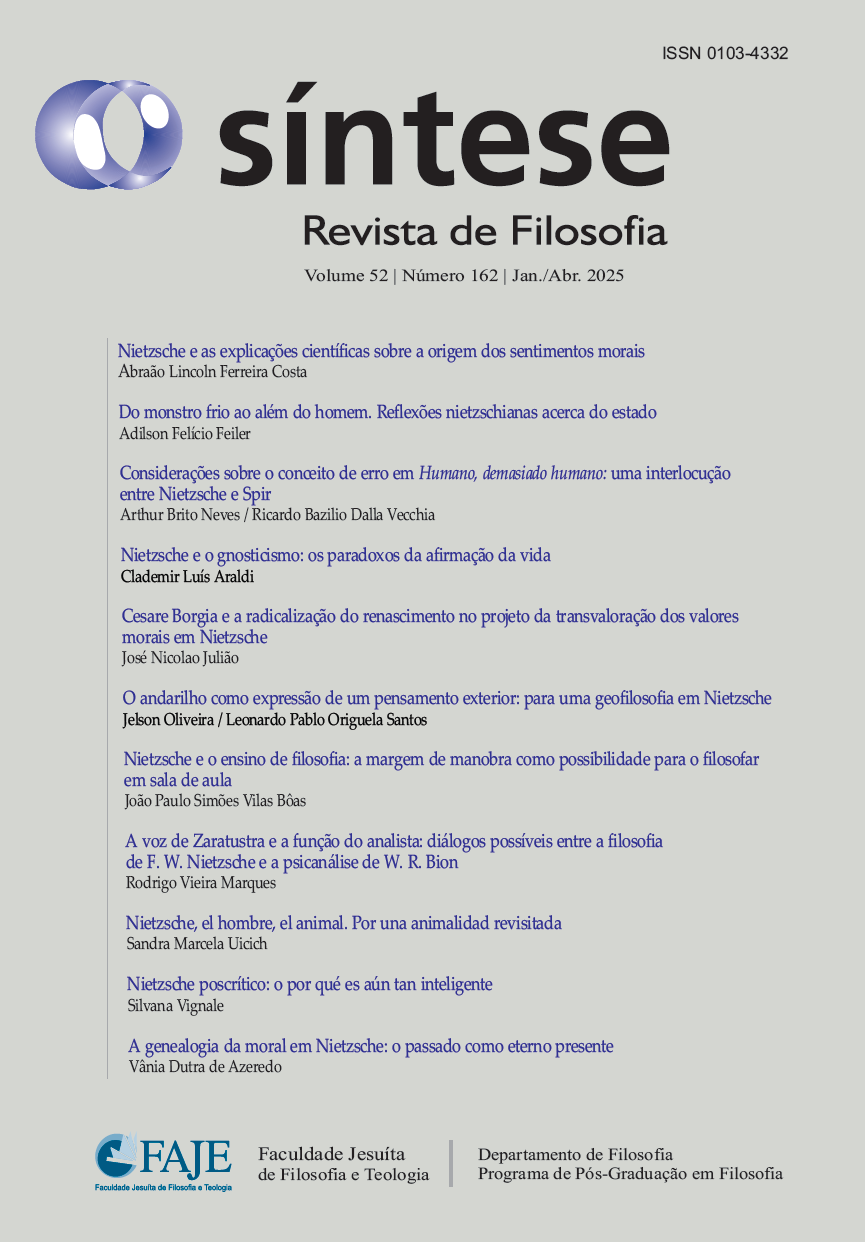THE GENEALOGY OF MORALS IN NIETZSCHE: THE PAST AS ETERNAL PRESENT
DOI:
https://doi.org/10.20911/21769389v52n162p225/2025Abstract
In this article, based on a study of Nietzsche’s sources, we will analyze the Genealogy of Morals from the historical common thread, aiming to show that the differentiating denominations of the aristocracies introduced by him in the first dissertation, namely, the priestly and the warrior, are found in Ancient Greece as distinctive terms of ways of being and evaluating, corresponding, in our hypothesis, to the Orphic-Pythagoreans first and the Greek aristocracy of the 7th-5th centuries BC. as second. In doing so, we will present Nietzsche as a philosopher who at all moments of his discursive journey remained situated in the time and space of the past, carrying with him the map of Ancient Greece, because only there, in his assessment, can the exemplarity of the human be found.
Keywords: Warrior aristocracy. Priestly aristocracy. Orphic-Pythagorean cult. Genealogy. History.






























